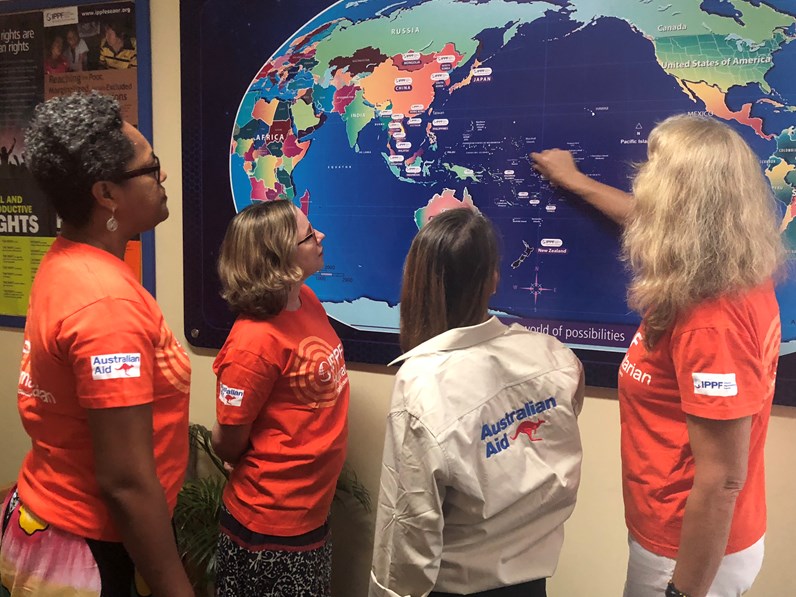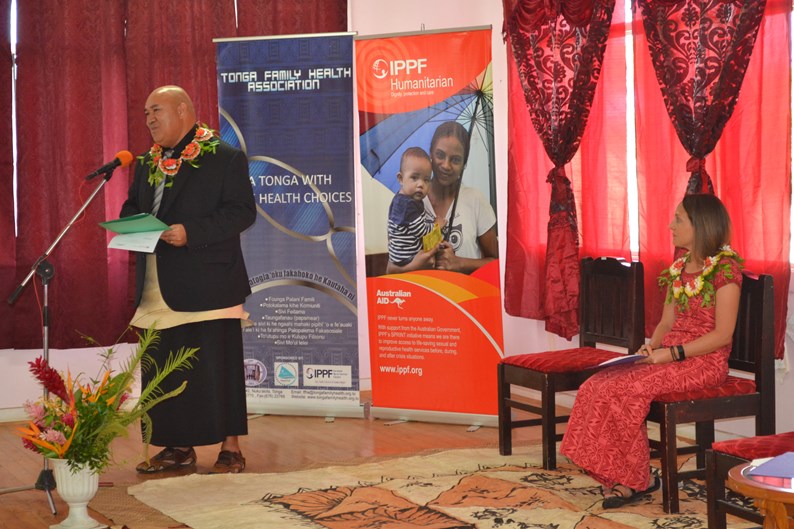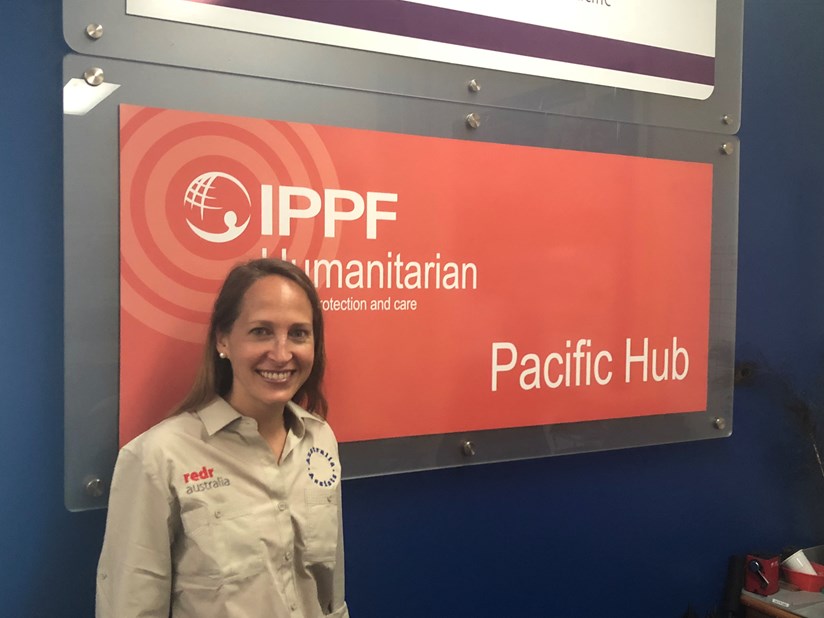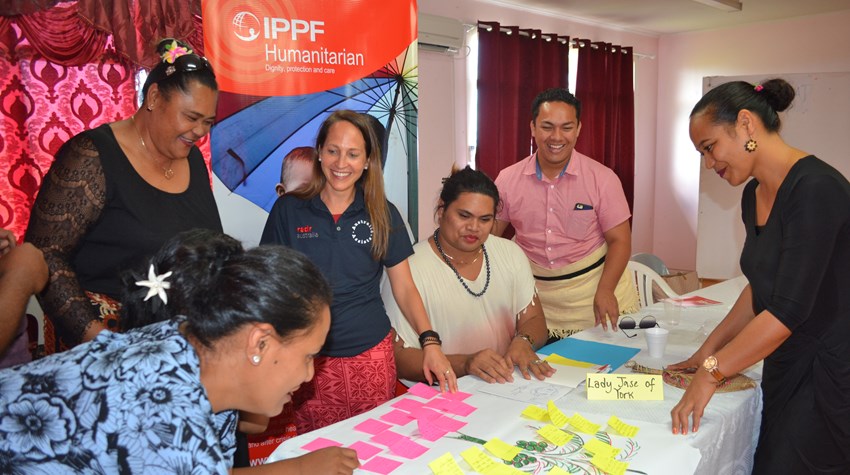Since July 2018, Australia Assists deployee and Gender Specialist Petra Letter has been working to build local capacity in responding to gender-based violence as part of essential sexual and reproductive health needs in times of emergency. Based in Suva, Fiji, Petra has designed a training package that has so far been delivered to frontline IPPF Member Associations staff, across three Pacific Island countries.
“A number of cyclones passed through a recently, which were close calls for Fiji, Tonga, and Vanuatu. Natural disasters are inevitable in the Pacific region, so this training package delivered in the preparedness phase is essential to improve the frontline response when the next emergency hits,” says Petra. “This training aims to improve the lives of vulnerable women and children in that time of need.”
Before developing the training, Petra conducted extensive mapping of GBV legal and policy structures available within different Pacific nations. She also ran a Knowledge, Attitude and Practices (KAP) survey across Member Association staff to gauge skill levels and identify gaps, and mapped gender and protection training programs conducted by other UN Agencies and NGOs in the region.

“Mapping other programs ensures we are not replicating what other agencies are doing. There has been significant work in gender-based violence response. Mapping and navigating the work from multiple stakeholders was essential as a key part of ensuring IPPF’s services are purposeful and targeted,” says Petra.
“Being based in Suva for the first two and a half months gave me the opportunity to focus on the research needed to design training to be delivered across a broad range of needs and staff skill levels.”
In late 2018, the training package was delivered across IPPF Member Associations in Samoa, the Cook Islands, and the Solomon Islands, with training in Tonga commencing in early 2019. In each country the training was facilitated alongside local staff more familiar with the national context and team’s needs, and has been well extremely well received.

“The way training was delivered in each country really varied. It was tweaked based on the unique needs and culture of each Member Association we were working with, as well as other factors such as time constraints,” Petra says.
“Many Member Associations have been calling out for a stronger training framework, so to be a part of delivering something with such high demand and impact was really exciting.”
Petra has drawn on her background in education throughout her deployment, which has been a huge success in the eyes of her senior, IPPF Sexual and Reproductive Health Advisor, Jane Newnham.
“Petra is a fantastic addition to our team. She is very experienced in the field, and she has a great ability to take initiative and to learn from work that's already been done in the area. She works really hard, which is shown by the fantastic output she's had in such a short period of time,” says Jane.
“It's really very timely getting her into country with RedR support, and we have been able to respond to the needs of Member Associations in an efficient manner.”
In the final six months of her deployment, Petra is hoping to see her training package delivered across most of the nine Pacific Island countries that IPPF operate in.
“While mapping and networking time was so valuable to developing the training, travelling to the country to actually deliver the training was the most rewarding,” says Petra.
“It’s experiences like that which keep me coming back to the humanitarian sector.”




